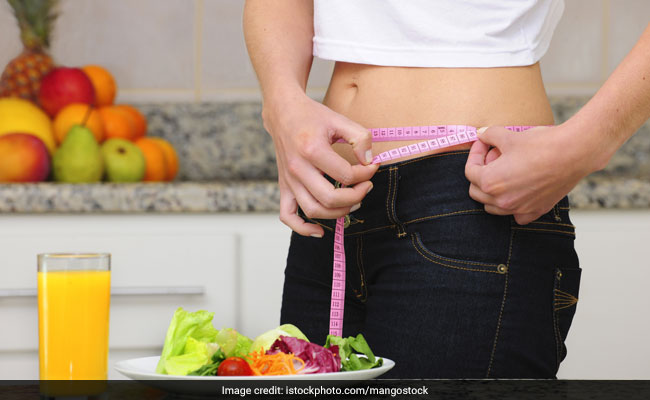
Heart disease remains the leading cause of death in the United States. It has not changed in almost a century. It is possible to prevent heart disease by adopting healthy lifestyle habits. Here are just some. Healthy for the heart is eating fruits and veggies. Smoking is another way to reduce your risk of developing heart disease. Remember to exercise regularly to lower your blood pressure. What are the best practices to avoid heart disease and prevent it?
Exercise reduces risk of heart disease

While many people know that exercise can help lower your risk of heart disease and add years to your life, they may not know how much exercise they need. Exercise is an insurance policy for your heart, offering both long-term and short-term protection. Even a single exercise session can provide protection for your heart for up to two hours. The American Heart Association recommends that you exercise at least 30 minutes per day, five to six times per week.
Healthy for the heart, vegetables and fruits are great.
While it is hard to ignore the cholesterol and saturated fats in processed foods, fruits and vegetables are among the most important foods you can eat. One cup of raw broccoli has a substantial amount of beta-carotene, as well as many vitamins and minerals such vitamin C and folate. Broccoli is great to add to soups and salads, and it's high in fiber. Other heart-healthy vegetables and fruits include cucumber, cantaloupe and asparagus.
The risk of developing coronary heart disease is reduced by quitting smoking
Nicotine is the main component of cigarette tobacco smoke. But other chemicals found in cigarette cigarettes can also damage your heart. Your arteries are damaged by carbon monoxide or tar. Both of these chemicals increase your blood pressure and cause your heart to beat faster. They also cause damage to your lungs. To add to these, smoking can also cause lung cancer. You can quit smoking, and there are many advantages.
Exercising lowers blood pressure

Regular exercise is one of the best ways to lower blood pressure. It takes one to three months to see changes in blood pressure, and the benefits of exercise last only as long as you continue to do it. You can incorporate aerobic exercise into your daily routine by jogging, walking, or riding your bike. You can lift weights and do high repetition exercises with light weights. The amount of exercise you can do will depend on several factors, including your blood pressure level and lifestyle.
Get enough sleep to lower your risk for heart disease
Many studies have found a link between poor sleep and cardiovascular disease. There is more research that shows a connection between sleeping disorders, and cardiovascular disease. People with common sleep disorders like plaque buildup, heart arrhythmias, or coronary arterial disease are more likely. The risk of developing cardiovascular disease can be increased by certain neurological sleep disorders. Good cardiovascular health can be achieved by getting adequate sleep.
FAQ
Does intermittent fasting affect my sleep?
Yes, intermittent fasting can impact your sleep. When you skip meals, your hunger hormones increase. You may wake up more often at night because of this.
This is why most experts recommend skipping breakfast. Instead, experts suggest eating a light snack just before bed.
If you still feel hungry after eating this snack, you may want to eat a small breakfast before going to bed.
However, you should not overeat. If you do, you will gain weight rather than losing it.
How can busy people lose weight?
It is best to eat less and exercise more to lose weight.
If you eat too much food, you'll gain weight. You will gain weight if exercise isn't enough. These two simple habits can help you start losing weight.
Is cardio a way to quickly lose weight?
Cardio exercises are great for burning calories, but they don't necessarily help you lose weight. It all depends on how many calories you've stored and what type exercise you do.
Cardio exercises might not be enough to lose excess weight if your body is overweight.
You need to combine them with dieting and other types of exercise.
If you are looking to lose weight quickly, cardio exercises such as running and jogging can be helpful. These exercises burn more calories than any other form of exercise.
You must train resistance if your goal is to gain muscle instead of losing weight. Resistance training requires the use of free weights and machines as well as elastic bands.
For fast weight loss, combine cardio with resistance training.
To lose weight fast, you need a combination of both cardio and resistance training.
What can I drink during intermittent fasting in the morning?
You should try drinking water first thing in the morning. It will help you feel fuller, faster, and it will give you energy throughout your day. To add some flavor, you can add lemon juice to the mix or cucumber slices.
Can I eat fruit while on intermittent fasting
You can't go wrong with fruits. They are rich in vitamins, minerals and fiber. However, they contain sugar, which can cause blood glucose to rise. This can lead to insulin resistance, weight gain, and even diabetes. If you're looking to lose weight with an IF diet then you should choose fruits that are low in glycemic.
How long does it usually take to lose weight
It takes time for weight loss. It can take six months to lose 10%.
Remember that you should not expect to lose weight in a matter of hours. Your body needs to adjust to new dietary habits.
This means that your diet should be gradually changed over many days or weeks.
You should also stop trying fad diets. They don't work. Instead, focus on improving your daily routine.
If you are a regular shopper of unhealthy snacks, it is a good idea to stop.
Instead, eat healthier meals at night. This will ensure that you don't snack late at night.
Drinking water throughout the day is also important. Water keeps you hydrated and prevents your body from becoming dehydrated. Dehydration makes you feel tired and sluggish.
Drinking lots of water throughout the day can help you stay energized, focused, and alert.
It is important to reduce stress levels through activities that allow you to relax. For instance, you could spend some quality time with loved ones.
You can also listen to music or read books.
These activities can help you to unwind after stressful situations. They can also help improve your moods and self-esteem.
If you want to lose weight, consider your health first.
Your physical fitness is an indicator of overall health. So, if you want to get fit, you should start with proper nutrition and regular exercise.
What should I eat during intermittent fasting to lose weight?
Cut out carbs to lose weight. This means you have to cut back on carbs such as bread, pasta rice, potatoes, and any other carbohydrate-based food.
Protein will also keep you fuller for longer so try to limit how much you eat. So you won't feel hungry as often.
Instead, focus on foods that contain healthy fats, such as olive oil, avocado, nuts, and seeds. These foods keep you satisfied even after hours of eating.
It's important to make sure you're drinking plenty of water, too. Water is important for your body's ability to stay hydrated and helps you burn more fat.
Sometimes you may feel compelled to eat these foods even if you're not fasting. This doesn't mean that you must give in to your cravings. If you do, you could gain more weight than you lost.
To prevent overeating, try keeping an eye on how much you consume throughout the day. You can sip water instead of reaching out for another snack when hunger strikes.
It may sound counterintuitive but this has been shown to help you lose weight. According to a study published in Obesity, participants consumed fewer calories if they drank plain water rather than sugary beverages.
In addition, drinking plain water helped reduce feelings of hunger. Don't drink sweetened beverages if your goal is to lose weight. Stick to water.
It doesn't take much to lose weight. Instead, focus on making small changes to your lifestyle.
Try swapping out your usual breakfast sandwich in favor of a bowl o' oatmeal. You can also swap out your afternoon cookie for a piece fruit.
These simple swaps will add up over time and help you shed pounds without spending hours in the kitchen.
Statistics
- It's estimated that half of all American adults attempt to lose weight every year (1Trusted (healthline.com)
- According to a study sponsored by the American Council on Exercise, a person weighing around 140 pounds (64 kg) would burn 108 calories at a 30-minute beginner's Pilates class or 168 calories at an advanced class of the same duration (26). (healthline.com)
- According to Harvard Health, it's estimated that a 155-pound (70-kg) person burns around 167 calories per 30 minutes of walking at a moderate pace of 4 mph (6.4 km/h) (5). (healthline.com)
- A 12-week study in 20 women with obesity found that walking for 50–70 minutes 3 times per week reduced body fat and waist circumference by an average of 1.5% and 1.1 inches (2.8 cm), respectively (healthline.com)
External Links
How To
How can you lose belly fat quickly?
You should know that losing bellyfat is difficult. It takes dedication and hard work. These tips will help you achieve your goals.
-
Eat Healthy Food. It is essential to eat healthy food. Ensure that you eat foods like fruits, vegetables, whole grains, lean protein, low-fat dairy products, nuts, seeds, beans, legumes, fish, poultry, eggs, olive oil, low-sugar fruits and vegetables, and stay away from junk food.
-
Drink Water. Water is good for you. It keeps your body hydrated so that you feel satisfied and full for longer periods. Keep hydrated every day.
-
Cardio exercises can help you burn more calories and increase your muscle mass. Cardio exercises help to burn more calories, build muscle mass, and improve your cardiovascular health. They also boost your metabolism and improve your heart condition. Try to do 30 minutes of cardio exercise daily.
-
Get Enough Sleep. Sleep is crucial for maintaining good health. Anxiety and stress can lead to unhealthy habits, such as smoking and eating too much.
-
Reduce stress levels. Stress can affect our brain chemistry. When we are stressed, our bodies produce cortisol, a hormone that increases hunger pangs and cravings for high-calorie foods.
-
Regular breaks are important. Take regular breaks throughout each day. Take a break and go outside to walk or take a nap. This allows your mind and body to relax and allow you to recover.
-
Avoid Alcohol Consumption. Avoid alcohol consumption. It is high in empty calories and slows down your digestion. Drinking alcohol is not a good option if you want to lose weight.
-
Have Fun!